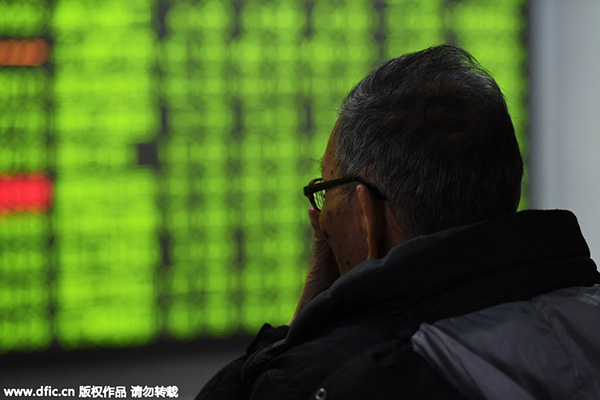 |
|
A man checks stock prices at a brokerage in Hangzhou, Zhejiang province, Jan 26, 2016. [Photo/IC] |
Chinese shares shrugged off weaker-than-expected trade figures to surge on Tuesday, brightening the prospects for the Year of Monkey, a Chinese zodiac animal usually associated with change rather than certainty.
Prior to this, the country's stock markets had not emulated the wild swings in the global markets, when they reopened on Monday after the weeklong Spring Festival holiday.
Admittedly, this bright start does not mean that the Chinese stock market is immune from the global uncertainties shaking the confidence of investors elsewhere. China's shrinking imports and exports in January no doubt spell trouble for many domestically listed companies and may impose pressure on their share prices.
Although the timing of Chinese New Year often distorts such monthly data at the beginning of the year, the latest statistics show that China's exports fell 11.2 percent in January from a year earlier, while its imports tumbled 18.8 percent. The declines are being widely regarded a fresh sign of the manufacturing weakness confronting the world's second-largest economy.
However, the fact that Chinese stock markets could resist not only last week's global sell-off but also resisted the downward pressure of the disappointing trade numbers, speaks of the resilience of the Chinese economy, and perhaps more importantly implies a subtle change of sentiment among Chinese investors.
Such resilience may reflect a belief that there has been an overcorrection in the domestic stock markets since last summer. The benchmark Shanghai Composite Index, for instance, is only about half the level it was eight months ago.
And certainly it serves as a counter argument to the allegation that China is the main culprit for almost all global economic woes. The closure of the Chinese stock markets and their resilient start on Monday should, at least, prove that China was not the main driver of last week's global equity sell-off, which was the result of the anxiety among investors fueled by falling commodity prices, concerns about European banks and confusion about US monetary policy.
